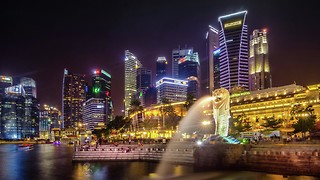Calls to free Pussy Riot step up
Letter written by member of activist group raises concern over Russian prisons

When three members of Russian punk-rock band Pussy Riot were sentenced to two years in penal colonies in October 2012 for staging an anti-Putin protest, the group received a great deal of international support.
The recent news of Nadezhda Tolokonnikova’s hunger strike in protest against the insupportable conditions at the penal colony IK-14 in Mordovia, which she explained in her open letter published in The Guardian last month, has refocused the world’s attention on the group.
Many have been horrified by the descriptions in Tolokonnikova’s letter of unbearable conditions endured by female prisoners in penal colonies such as IK-14.
Tolokonnikova, who works as a seamstress making police uniforms, describes hellish seventeen-hour working days and getting “four hours sleep a night.” She writes that the women have one day off every six weeks.
Tolokonnikova says that prisoners are fed “stale bread, heavily watered-down milk... and rotten potatoes.” She adds that the inmates are forced to discipline each other, enacting punishments in place of the supervisors. If one person slips up, everyone gets punished.
In a recent Russian article in Bolshoi Gorod on the prison system, an ex-inmate describes the horror of stepping out of line and having to watch as elderly women must stand with you in the yard in the sweltering heat in summer or in minus-forty degrees winter for seven hours, visibly suffering and collapsing.
By all accounts Russia’s prisons for men are much worse. Tolokonnikova also claims that the deputy head of the colony threatened to kill her, though this has been denied by the administration as an attempt to manipulate the colony to move Tolokonnikova from the sewing position to an art workshop.
Tolokonnikova says that she followed fellow Pussy Riot member Maria Alyokhina in going on hunger strike because the “penal colony administration refuses to hear me.” However, she was forced to stop the nine-day strike after being hospitalised with medical complications.
On Friday 11th October, after two weeks of confinement without the possibility of seeing family or lawyers, The Guardian reported that Tolokonnikova, although recovered, was extremely unhappy with the confinement, which was no way in the interest of her medical health.
She said: “If you think that without contact with my friends I will become amenable and open to compromise, and go back on the views I have formed about Mordovia’s camps during my time in jail, then you are horribly mistaken”.
These claims of human rights abuses and death threats have provoked the Kremlin to say that they will inspect the colony, but whether anything will be changed remains to be seen.
Tolokonnikova’s concludes her open letter by saying: “I will do this until the administration starts obeying the law and stops treating incarcerated women like cattle ejected from the realm of justice for the purpose of stoking the production of the sewing industry; until they start treating us like humans.”
Tolokonnikova and Alyokhina are due to be released in March 2014. Yekaterina Samutsevich had her sentence suspended on appeal.
There have also been calls for the release of Greenpeace activists who were detained in Russia last month on piracy charges.
 News / Council rejects Wolfson’s planned expansion28 August 2025
News / Council rejects Wolfson’s planned expansion28 August 2025 News / Tompkins Table 2025: Trinity widens gap on Christ’s19 August 2025
News / Tompkins Table 2025: Trinity widens gap on Christ’s19 August 2025 Interviews / GK Barry’s journey from Revs to Reality TV31 August 2025
Interviews / GK Barry’s journey from Revs to Reality TV31 August 2025 Comment / My problem with the year abroad29 August 2025
Comment / My problem with the year abroad29 August 2025 News / New UL collection seeks to ‘expose’ British family’s link to slavery30 August 2025
News / New UL collection seeks to ‘expose’ British family’s link to slavery30 August 2025









